counterfeit
Aichi resident makes surprisingly effective use of many of Japan’s beloved services to pull off his ill-fated forgery attempt.
Counterfeit coins and bills are hard to make and with the advancement of technology, hard to pass for genuine money. Store clerks are armed with a variety of techniques, from special pens to knowledge of watermark placement, making it even more difficult for those looking for undeserved cash to score big.
However, with the proliferation of vending machines across Japan and the circulation of a high-value 500 yen (US$5) coin, counterfeiters have a perfect mark for cashing in their fake coins, as a recent photo on Twitter confirms.
On 4 November Osaka Prefectural Police announced the arrest of two teenagers aged 15 and 16 for fraud. The two boys are accused of trying to pass off a fake one million yen (US$10,000) bank note at a small cigarette stand in Suita City.
Although, passing off counterfeit money is usually considered “uttering” and may be punishable by jail time, the pair were given a reduced charge of fraud because, according to police, “the fake money used was really bad.”
It has come to light that the Japanese government’s Fukushima Daiichi cleanup plan is failing due to problems concerning counterfeit contracts. The government is now left reassessing its human resource strategy and considering how to effectively secure the number of employees required to carry out the work. As it presently stands, more than half of the laborers employed at the nuclear site are suspected of being involved in counterfeit contract work.
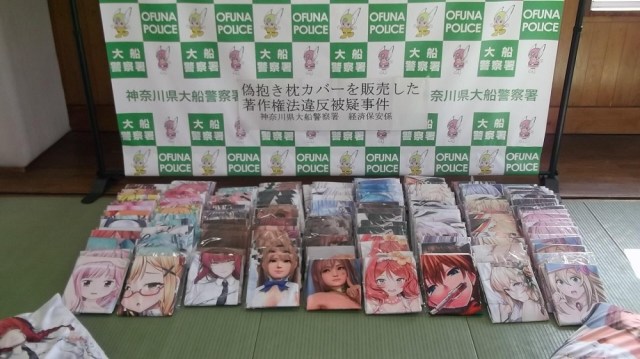
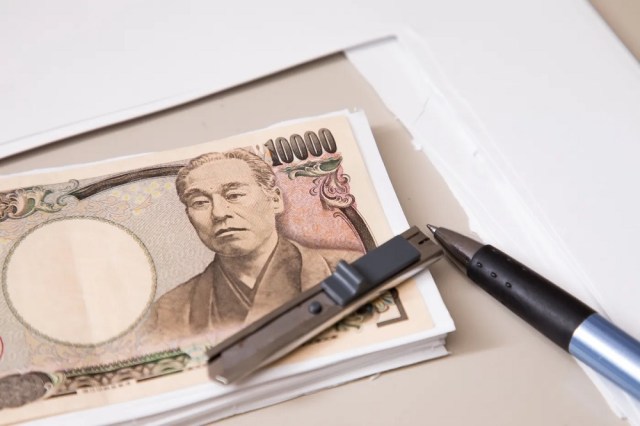

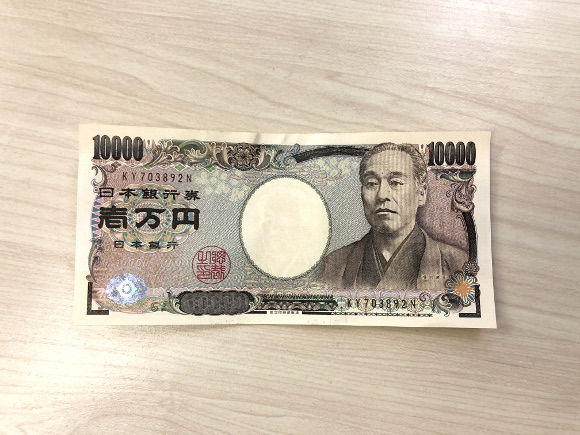
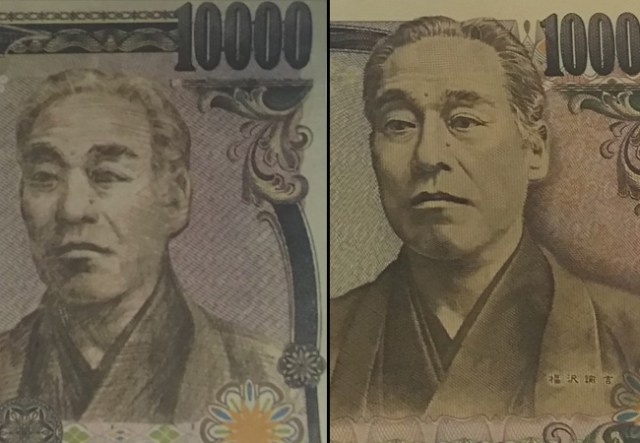
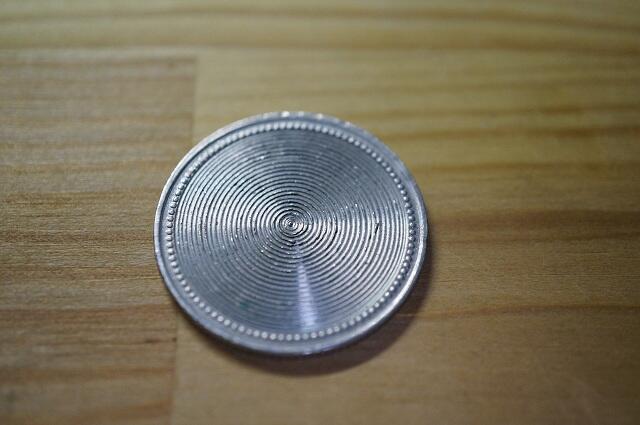
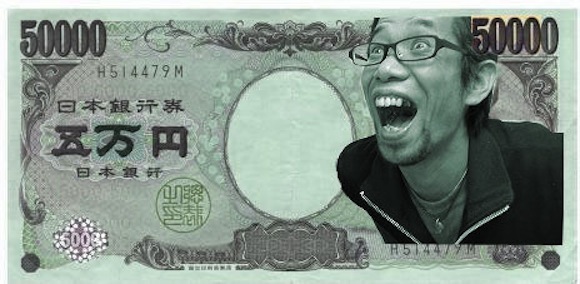
 The fish in rural Fukui that rivals Japan’s most auspicious sea bream
The fish in rural Fukui that rivals Japan’s most auspicious sea bream Which convenience store onigiri rice balls are the most popular? Survey reveals surprising results
Which convenience store onigiri rice balls are the most popular? Survey reveals surprising results Japanese restaurant chain serves Dragon Ball donuts and Senzu Beans this spring
Japanese restaurant chain serves Dragon Ball donuts and Senzu Beans this spring Japan Extreme Budget Travel! A trip from Tokyo to Izumo for just 30,000 yen [Part 1]
Japan Extreme Budget Travel! A trip from Tokyo to Izumo for just 30,000 yen [Part 1] Japan Extreme Budget Travel! A trip from Tokyo to Izumo for just 30,000 yen [Part 2]
Japan Extreme Budget Travel! A trip from Tokyo to Izumo for just 30,000 yen [Part 2] Japan has only one airport named after a samurai, so let’s check out Kochi Ryoma【Photos】
Japan has only one airport named after a samurai, so let’s check out Kochi Ryoma【Photos】 New sushi train toy makes sushi for you, then delivers it, and is exactly what we want【Video】
New sushi train toy makes sushi for you, then delivers it, and is exactly what we want【Video】 Starbucks Japan releases first-ever Hinamatsuri Girls’ Day Frappuccino
Starbucks Japan releases first-ever Hinamatsuri Girls’ Day Frappuccino Sakura Totoro is here to get spring started early with adorable pouches and plushies
Sakura Totoro is here to get spring started early with adorable pouches and plushies This Japanese restaurant chain’s triple-decker sushi bowls are a crazy feast for the eyes/stomach
This Japanese restaurant chain’s triple-decker sushi bowls are a crazy feast for the eyes/stomach Highest Starbucks in Japan set to open this spring in the Tokyo sky
Highest Starbucks in Japan set to open this spring in the Tokyo sky The 10 most annoying things foreign tourists do on Japanese trains, according to locals
The 10 most annoying things foreign tourists do on Japanese trains, according to locals Tokyo Skytree turns pink for the cherry blossom season
Tokyo Skytree turns pink for the cherry blossom season Yakuzen ramen restaurant in Tokyo is very different to a yakuza ramen restaurant
Yakuzen ramen restaurant in Tokyo is very different to a yakuza ramen restaurant Shibuya Station’s Hachiko Gate and Yamanote Line stairway locations change next month
Shibuya Station’s Hachiko Gate and Yamanote Line stairway locations change next month Starbucks Japan releases new sakura goods and drinkware for cherry blossom season 2026
Starbucks Japan releases new sakura goods and drinkware for cherry blossom season 2026 Starbucks Japan adds new sakura Frappuccino and cherry blossom drinks to the menu
Starbucks Japan adds new sakura Frappuccino and cherry blossom drinks to the menu Japan’s new “Cunte” contact lenses aren’t pronounced like you’re probably thinking they are
Japan’s new “Cunte” contact lenses aren’t pronounced like you’re probably thinking they are Japan’s newest Shinkansen has no seats…or passengers [Video]
Japan’s newest Shinkansen has no seats…or passengers [Video] Foreigners accounting for over 80 percent of off-course skiers needing rescue in Japan’s Hokkaido
Foreigners accounting for over 80 percent of off-course skiers needing rescue in Japan’s Hokkaido Super-salty pizza sends six kids to the hospital in Japan, linguistics blamed
Super-salty pizza sends six kids to the hospital in Japan, linguistics blamed Starbucks Japan unveils new sakura Frappuccino for cherry blossom season 2026
Starbucks Japan unveils new sakura Frappuccino for cherry blossom season 2026 Foreign tourists in Japan will get free Shinkansen tickets to promote regional tourism
Foreign tourists in Japan will get free Shinkansen tickets to promote regional tourism Take a trip to Japan’s Dododo Land, the most irritating place on Earth
Take a trip to Japan’s Dododo Land, the most irritating place on Earth Naruto and Converse team up for new line of shinobi sneakers[Photos]
Naruto and Converse team up for new line of shinobi sneakers[Photos] Is China’s don’t-go-to-Japan warning affecting the lines at a popular Tokyo gyukatsu restaurant?
Is China’s don’t-go-to-Japan warning affecting the lines at a popular Tokyo gyukatsu restaurant? Survey asks foreign tourists what bothered them in Japan, more than half gave same answer
Survey asks foreign tourists what bothered them in Japan, more than half gave same answer Japan’s human washing machines will go on sale to general public, demos to be held in Tokyo
Japan’s human washing machines will go on sale to general public, demos to be held in Tokyo Starbucks Japan releases new drinkware and goods for Valentine’s Day
Starbucks Japan releases new drinkware and goods for Valentine’s Day We deeply regret going into this tunnel on our walk in the mountains of Japan
We deeply regret going into this tunnel on our walk in the mountains of Japan Studio Ghibli releases Kodama forest spirits from Princess Mononoke to light up your home
Studio Ghibli releases Kodama forest spirits from Princess Mononoke to light up your home Major Japanese hotel chain says reservations via overseas booking sites may not be valid
Major Japanese hotel chain says reservations via overseas booking sites may not be valid Put sesame oil in your coffee? Japanese maker says it’s the best way to start your day【Taste test】
Put sesame oil in your coffee? Japanese maker says it’s the best way to start your day【Taste test】 No more using real katana for tourism activities, Japan’s National Police Agency says
No more using real katana for tourism activities, Japan’s National Police Agency says Japan has only one airport named after a samurai, so let’s check out Kochi Ryoma【Photos】
Japan has only one airport named after a samurai, so let’s check out Kochi Ryoma【Photos】 New sushi train toy makes sushi for you, then delivers it, and is exactly what we want【Video】
New sushi train toy makes sushi for you, then delivers it, and is exactly what we want【Video】 Starbucks Japan releases first-ever Hinamatsuri Girls’ Day Frappuccino
Starbucks Japan releases first-ever Hinamatsuri Girls’ Day Frappuccino Sakura Totoro is here to get spring started early with adorable pouches and plushies
Sakura Totoro is here to get spring started early with adorable pouches and plushies This Japanese restaurant chain’s triple-decker sushi bowls are a crazy feast for the eyes/stomach
This Japanese restaurant chain’s triple-decker sushi bowls are a crazy feast for the eyes/stomach Beautiful blue apple jam is taking the Japanese internet’s breath away!
Beautiful blue apple jam is taking the Japanese internet’s breath away! “World’s most beautiful Starbucks” gets a makeover in Japan, but is it still beautiful?
“World’s most beautiful Starbucks” gets a makeover in Japan, but is it still beautiful? Japan has omurice chocolate, and the weirdest thing isn’t how it tastes
Japan has omurice chocolate, and the weirdest thing isn’t how it tastes Puppet Sunsun taking over Lawson convenience stores all over Japan
Puppet Sunsun taking over Lawson convenience stores all over Japan Getting a driver’s license in Japan the hard way: The first written test
Getting a driver’s license in Japan the hard way: The first written test Shakey’s is back! All-you-can-eat pizza chain returns to downtown Tokyo’s Shinjuku
Shakey’s is back! All-you-can-eat pizza chain returns to downtown Tokyo’s Shinjuku The 10 most annoying things foreign tourists do on Japanese trains, according to locals
The 10 most annoying things foreign tourists do on Japanese trains, according to locals How to make curry in a rice cooker with zero prep work and no water[Recipe]
How to make curry in a rice cooker with zero prep work and no water[Recipe] Trending technique for breaking apart chopsticks turns out to be clever new design by Muji
Trending technique for breaking apart chopsticks turns out to be clever new design by Muji